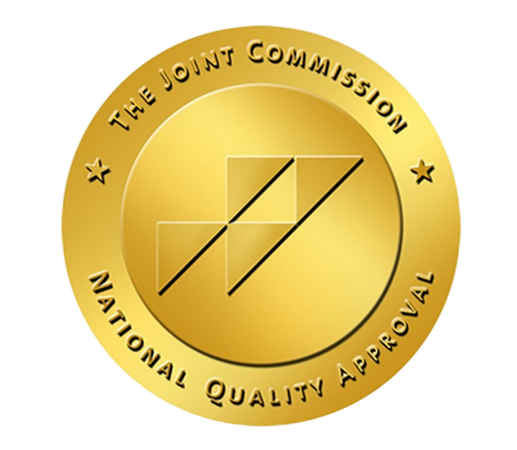The Link Between Mindfulness
and Mental Health
Our team is here to ensure that you get the treatment you need. Learn more about the connection between mindfulness and mental health in this article.
Table of Contents
Mindfulness and Mental Health: Unlocking the Power of Now
Mindfulness is a practice that brings a person’s attention to the present. This simple yet profound technique has deep roots in meditation and has gained popularity for its mental health benefits.

AM Behavioral Health’s Commitment to Mindful Healing
At AM Behavioral Health, we understand the importance of the connection between mindfulness and mental health. Because of this, we are dedicated to teaching about the importance of mindfulness and stress management techniques in our mental health treatments.
We understand the impact it can have on mental well-being and are committed to offering comprehensive programs that support your recovery journey. Our integrative approach provides comprehensive care in order to address the mind, body, and spirit concurrently.
Understanding Mindfulness
Mindfulness is the practice of being present and fully engaged in the moment. When someone practices mindfulness, they focus on their current experience without judgment. This means paying attention to thoughts, feelings, and sensations as they occur in real-time.
What Are the Origins of Mindfulness Practices?
The concept of mindfulness has its roots in ancient meditation practices, particularly those found in Buddhist traditions. However, mindfulness as we know it today has been influenced by a vast mixture of Eastern and Western thought.
In the 1970s, Jon Kabat-Zinn, a molecular biologist, played a significant role in bringing mindfulness into the mainstream of Western medicine and psychology.
He developed a program called mindfulness-based stress reduction (MBSR) that has been widely used to help people cope with chronic pain, stress, and other mental health conditions. This has been utilized and changed over the decades to help individuals heal from stress and other symptoms.1
The Benefits of Mindfulness and Mental Health Integration in Treatment
The connection between mindfulness and mental health is clear and powerful, as both have been shown to affect each other during treatment and for mental healthcare.
These benefits include, but are not limited to, the following:
Stress Reduction
Mindfulness helps lower stress by allowing people to observe their thoughts and feelings without judgment. When someone practices mindfulness, they learn to detach from stressors and view them more objectively.
This process reduces the impact of stress on the body and mind. For instance, individuals might find that situations that once caused tension no longer have the same effect. This can help improve many areas of their lives, including mental health, social relationships, and more.
Improved Focus
Regular mindfulness practice can also increase a person’s ability to concentrate and stay engaged in activities. It trains the brain to focus on the present task. This, in turn, reduces the amount of time spent on distractions and increases productivity.
Better Emotional Regulation
Mindfulness aids in recognizing emotional patterns and provides the space to choose how to react to them. Instead of being overwhelmed by emotions, people learn to acknowledge them and respond calmly and effectively.
Incorporating Mindfulness Into Mental Health Treatment
Mindfulness practices, whether incorporated independently or with a certified professional, can significantly improve the efficacy of mental health, addiction, and dual diagnosis recovery programs.
Some mindfulness modalities often utilized include:
Mindfulness-Based Therapies
These therapies are evidence-based and have shown promising results in improving mental health:
Mindfulness-Based Stress Reduction (MBSR)
MBSR is a structured program that combines mindfulness meditation, body awareness, and yoga to help people become more mindful. Originally developed to help patients manage pain and stress, MBSR has proven effective for a wide range of mental health issues.
In many treatment centers, this program often lasts eight weeks. During this time, people learn to pay attention to the present moment. This includes thoughts, feelings, body sensations, and the surrounding environment. By focusing on the now, they’re less likely to get caught up in worries or regrets.
Research shows that regular mindfulness practice can change the brain’s structure and function. It can increase gray matter density in parts of the brain involved in learning, memory, and emotion regulation. This means MBSR can help the brain process emotions more effectively.2
Mindfulness-Based Cognitive Therapy (MBCT)
MBCT blends cognitive behavioral therapy (CBT) with mindfulness strategies. It is especially effective for those who have experienced recurrent depression.3
MBCT teaches people how to break away from negative thought patterns that can trigger a downward spiral into depression. Instead of trying to avoid or eliminate these thoughts, people learn to approach them with curiosity and without judgment. This shift in perspective can reduce the impact of negative thinking on mental health.
For instance, if someone starts to feel down or anxious, MBCT strategies can help them observe these feelings without immediately reacting to them. This mindful approach allows people to see their thoughts as just thoughts, not facts, and decide how to deal with them in a healthier way.
In mindfulness and mental health, MBCT helps build resilience against the automatic reactions that can lead to stress and mood disorders. By practicing mindfulness, people enhance their ability to stay grounded in the present moment
Mindfulness and Mental Health: Enhancing Therapeutic Outcomes
At AM Behavioral Health, we have observed that mindfulness practices help people develop a better understanding of their mental health and substance use disorders, ultimately fostering more effective coping strategies.
Mindfulness helps individuals identify and modify patterns of negative thinking and behavior that contribute to mental health challenges. It can also enhance the therapeutic process by improving the therapeutic relationship.
Some other benefits of integrating mindfulness and mental health include:
Improves Communication
When people are more mindful, they can communicate more effectively and openly with therapists, leading to a deeper and more meaningful therapeutic experience. This openness and awareness can accelerate progress in therapy and lead to more sustainable mental health improvements.
Enhances Well-Being
Beyond specific therapeutic outcomes, mindfulness contributes to an enhanced sense of well-being. Regular mindfulness practice can increase self-awareness, patience, and tolerance, as well as decrease the tendency to react impulsively.
Cultivates Contentment
Mindfulness treatment fosters a greater appreciation for life and helps cultivate a sense of peace and contentment. By being present and fully engaging in the moment, people can enjoy experiences more fully and develop a deeper appreciation for the simple pleasures in life.
Mindfulness and Mental Health: Techniques and Practices to Utilize
By adopting mindfulness practices, individuals take a proactive step toward enhancing their mental health, leading to a more balanced and fulfilling life in almost every way.
Some common mindfulness and mental health techniques include:
Mindfulness Meditation
Mindfulness meditation starts with finding a peaceful spot. Individuals will sit or lie down and pay attention to their breath, feeling each inhalation and exhalation. The goal is to be present, observing thoughts and feelings as they come and go, without getting caught up in them.
This practice benefits mental health by engaging the brain areas linked to attention and sensory processing. It helps calm the mind, reduce stress, and improve concentration. This is beneficial for many mental health disorders, such as anxiety and depression.
Body Scan Exercises
A body scan exercise is a mindfulness practice where individuals focus attention on different parts of their body, one at a time, from head to toe. They observe any sensations, tensions, or discomforts in each area without trying to change them.
This practice encourages a state of active, open attention on the present moment and on the body’s various sensations. During a body scan, individuals might start by focusing on the sensations in their feet, noticing any warmth, coolness, pressure, tingling, or pain.
Gradually, they then shift this focused attention up through their legs, torso, arms, and head, observing each part in turn. This process helps cultivate awareness of the body and its sensations, which can lead to a greater acceptance and connection with one’s self.
Mindful Breathing Techniques
Mindful breathing involves focusing one’s attention on their breath, the inhalation and exhalation, and observing each breath without trying to alter it.
Mindful breathing brings an individual’s attention to the present and helps them become more aware of their thoughts and feelings. This technique involves noticing the breath as it enters and leaves the body, feeling the rise and fall of one’s chest or the sensation of air passing through the nostrils.
Mindful breathing works by activating the parasympathetic nervous system, which controls relaxation. When someone breathes deeply and focuses on their breath, it signals the body to slow down and relax, reducing heart rate and blood pressure while also decreasing stress levels.4
Integrating Mindfulness into Everyday Life
Everyday tasks provide numerous opportunities to practice mindfulness. By fully engaging with the present activity, individuals can cultivate a deeper awareness of their experiences.
Mindful Eating
For instance, mindful eating involves paying close attention to the flavors, textures, and sensations of food. It transforms a routine meal into a mindful experience that can increase satisfaction and promote healthier eating habits.
Mindful Walking
Mindful walking encourages individuals to notice each step, the feel of the ground beneath one’s feet, and the surrounding sounds and sights. This can turn a simple walk into a revitalizing mental break.
Mindful Talking and Active Listening
Incorporating mindfulness into daily conversations can also enhance one’s ability to listen and connect with others. This involves actively listening to what the other person is saying without getting lost in one’s own thoughts or planning a response.
It also includes noticing their body language and tone of voice, which can deepen understanding and improve communication.
Complementary and Evidence-Based Approaches at AM Behavioral Health
At AM Behavioral Health, we greatly value the importance of comprehensive mental health and addiction treatment. This is why we provide evidence-based treatments to complement mindfulness-based practices that many individuals also utilize in healing.
Evidence-based therapies are fundamental in mental health treatment, providing scientifically validated approaches to address various psychological conditions.
Therapies such as cognitive-behavioral therapy (CBT), dialectical behavior therapy (DBT), and medication-assisted treatment (MAT) are grounded in rigorous research and clinical trials, showcasing their effectiveness.
How Do These Therapies Help?
By targeting specific symptoms and underlying cognitive and behavioral patterns, evidence-based therapies empower individuals to develop practical skills for managing distress, regulating emotions, and improving interpersonal relationships.
Through structured sessions and homework assignments, clients learn to challenge negative thought patterns, develop healthier coping mechanisms, and cultivate resilience.
By providing tools and strategies backed by empirical evidence, these therapies offer individuals the means to achieve lasting positive change and improve their overall mental health and well-being.

Embracing Mindfulness and Mental Health Treatment at AM Behavioral Health
At AM Behavioral Health, our commitment to enhancing mental health through mindfulness is steadfast. We believe in providing high-quality care that integrates mindfulness into our treatment plans. These practices are part of a lifestyle that promotes mental health and well-being.
Our goal is to empower you with healing and wellness techniques that can be seamlessly integrated into your daily life. This often includes evidence-based practices that are utilized in the healing process.
Nurturing the Mindfulness and Mental Health Connection
Through our diverse mindfulness-based therapies, we aim to help you:
- Develop a deeper awareness of your thoughts and emotions
- Manage stress and anxiety
- Improve focus and concentration
- Cultivate compassion for yourself and others
- Persisting or worsening symptoms
- Thoughts of self-harm or suicidal ideation
- Facing relapse or setbacks
- Inability to maintain daily routines, work, or relationships
We understand the importance of self-care and strive to provide you with tools that can aid in your mental well-being beyond therapy sessions. Our team of licensed therapists is dedicated to helping you build a stronger mind and lead a more fulfilling life.
Contact Our Supportive Team at AM Behavioral Health Today
For those interested in learning more about mindfulness and mental health, AM Behavioral Health is here to support you. Reach out to us today to schedule an appointment and embark on your journey towards a balanced and mindful life.
We are here to ensure that you get the care, help, and healing you need. We meet you anywhere along your journey.





